The United Nations children’s agency recently noted that one thousand days have passed since Afghan officials banned girls from attending secondary schools.
Catherine Russell is the executive director of UNICEF. On June 13, Russell said, “No country can move forward when half its population is left behind.”
In a statement, Russell urged Taliban officials to permit all children to restart learning immediately. She also called on the international community to support Afghan girls, who she said need it more than ever. The agency estimates that more than 1 million girls are affected.
The U.N. has warned that the ban on girls’ education remains the Taliban’s biggest barrier to gaining recognition as the lawful rulers of Afghanistan.
The Taliban took over Afghanistan following the withdrawal of U.S. and NATO forces in 2021. The group has said that educating girls goes against its strict interpretation of Islamic law.
Although it has promised a more moderate rule, the Taliban has also barred women from higher education, most jobs, and even public spaces like parks. When the Taliban ruled Afghanistan in the 1990s, they also banned girls’ education.
The Taliban has barred girls from attending classes beyond sixth grade. It is the only country in the world with such restrictions on female education.
New school year
The Taliban shut down girls' secondary schools in 2022. The group gave "religious and cultural" concerns as the reasons.
The Taliban officials said they were working to create a correct educational environment for older female students.
The new school year started in March with girls barred from attending classes beyond the sixth grade. Female journalists were not permitted to attend the opening ceremony.
An Afghan education official told VOA at the time that the ruling Taliban group might permanently close girls' secondary schools. The official said the Taliban is instead supporting religious schools known as madrasas.
“Schools may never be reopened the way they were under the occupation,” an official at Afghanistan’s Education Ministry told VOA. The official was referring to 2001 to 2021, when the U.S. military was in the country.
Last week, UNICEF’s executive director called the systematic exclusion of girls a “violation of their right to education.” She added it also resulted in decreasing opportunities for girls and affected their mental health.
She said UNICEF has worked with partners to run community-based education classes for 600,000 children, two-thirds of them girls, and train teachers in Afghanistan.
Although Afghan boys have access to education, Human Rights Watch has said the Taliban’s “abusive” educational policies are harming them. In a report published in December, the group said the departure of qualified teachers, changes in curriculum, and an increase in physical, or corporal, punishment have led to greater fear of going to school and falling attendance.
Also on Thursday, a spokesperson for the U.N. Human Rights Office said the Taliban has told female public civil servants that their pay would be cut to the lowest level regardless of their experience or qualifications. The group had already banned females from working.
Volker Türk is the U.N. High Commissioner for Human Rights. The spokesperson said he urged the group to withdraw laws, orders, and all other measures that discriminated against women and girls, in violation of the country’s human rights obligations.
Nobody from the Taliban was immediately available for comment.
I’m Jill Robbins.
Hai Do adapted this Associated Press report for VOA Learning English with additional reporting from VOANEWS.
_________________________________________________
Words in This Story
journalist –n. a person who collects, writes or edits news stories for newspapers, magazines, TV or radio
exclusion –n. the act of barring a person from a group
access –n. the ability to get into a place or an activity
curriculum –n. the education plan for a class or for a course of education
regardless of –adv. without be stopped by
obligation –n. something that is required by law, morality or ethics
We want to hear from you.



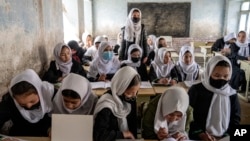
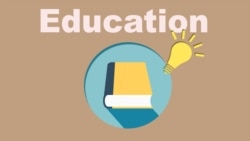

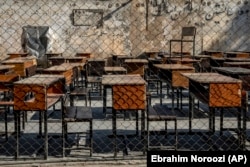
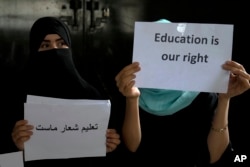
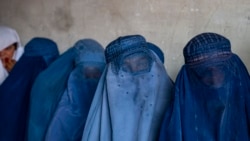




Forum